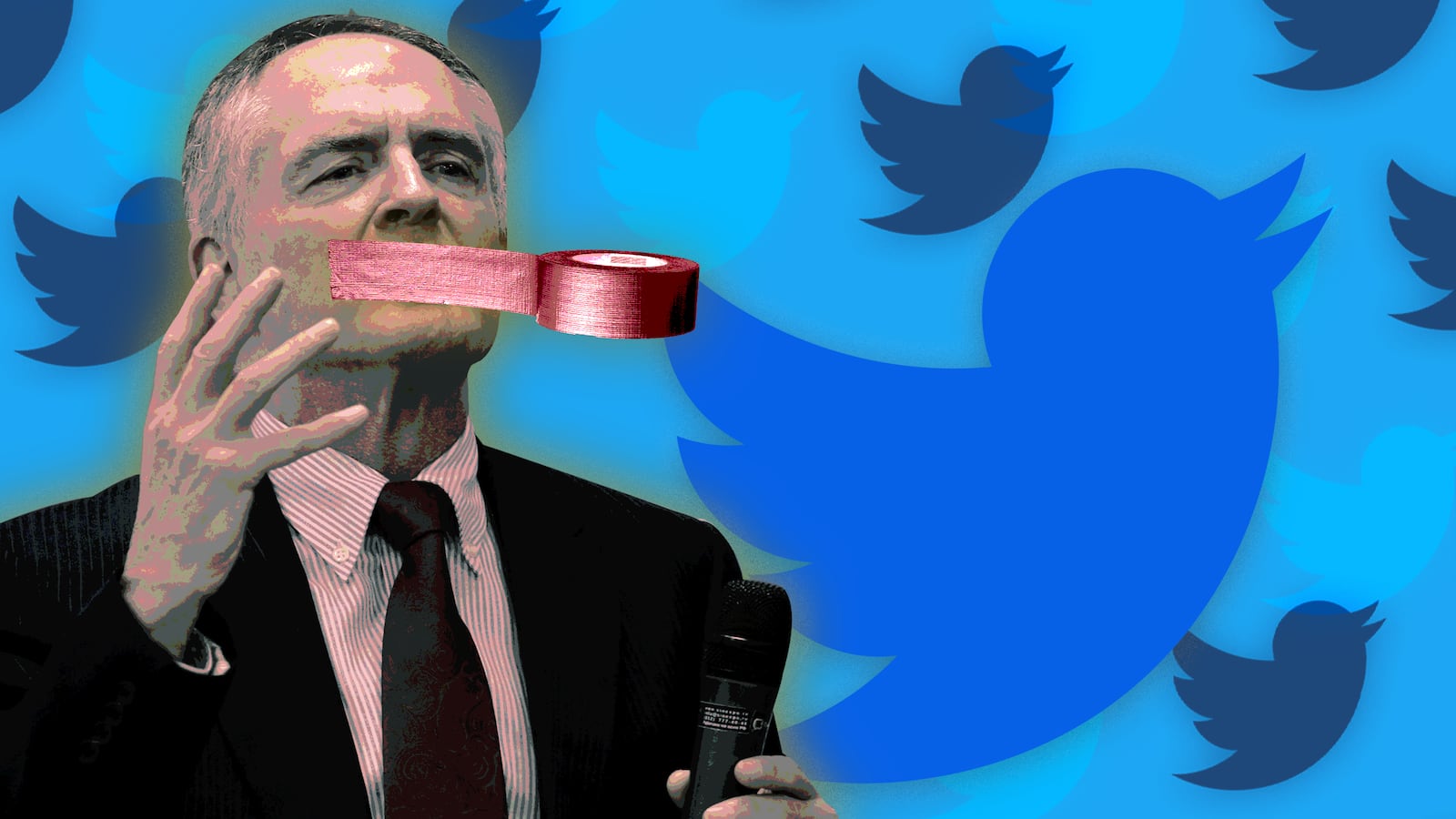Twitter has begun mass suspending accounts belonging to white supremacists and hate groups as changes to the platform's policies take effect today.
Far-right U.K. political group Britain First was one of the first accounts to be suspended, along with its affiliates including Paul Golding and Jayda Fransen. Three of Fransen's anti-Muslim viral video tweets, one of which featured a Dutch boy in the Netherlands falsely identified as a “migrant,” were recently retweeted by Trump.
White nationalist Jared Taylor and his site, American Resistance, are also some of the early casualties of Twitter’s new anti-hate rules, along with fellow white nationalists Hunter Wallace and the Traditionalist Workers Party. The Traditionalist Workers Party is an organization co-founded by neo-Nazi Tony Hovater, who was recently profiled by the New York Times to substantial backlash.
On Sunday, fear spread among the white nationalist community that Twitter suspensions were imminent. Many began tweeting with the hashtag #TwitterPurge and encouraging followers to find them on Gab.ai, a far-right Twitter clone that once wrote “If you are straight, white, Christian, Republican, anti-PC, libertarian, conservative; to Silicon Valley: you are the enemy” in a press release.
Taylor joined Gab on Sunday posting, "I am grateful to have a platform that does not believe in censorship. I look forward to posting in a community that actually exercises free speech -- a rarity today in what used to be called "the land of the free and the home of the brave."
Supporters of white supremacists who have so far escaped the ban themselves have been tweeting out the letter "F" to pay homage to their fallen comrades. As The Hill's Will Sommer points out, "Press F to pay respects" is a reference to a scene in the video game Call of Duty where the player must press the "F" button to pay respects at a military funeral.
Users on Gab have been furiously posting that Twitter is silencing free speech by curbing hate speech, racism, and threats of violence. They have also been claiming that the platform is perpetuating "reverse racism.”
"The rules seem to be 'if you are white, you are a hater. If you are a person of color, hate freely /w our blessing!'" one user posted on Monday.
In November the platform announced it would be cracking down on hate speech and evaluating user's behavior both on and off the platform, a major shift in the tech company's policy.
"You may not affiliate with organizations that — whether by their own statements or activity both on and off the platform — use or promote violence against civilians to further their causes," Twitter wrote in an update to its Help Center blog.
The company promised to begin enforcing these new rules beginning December 18th.
Twitter had previously come under fire for verifying self admitted Nazis and white supremacists, a move many saw as an endorsement of their behavior.
In November it reversed course and began de-verifying those users. Richard Spencer and Charlottesville “Unite The Right” protest creator Jason Kessler were some of the first to be stripped of their checkmarks. As of Monday morning, both Spencer and Kessler's accounts were still active.
Twitter's policy changes won’t affect military or government bodies, according to a Twitter spokesperson. This means that accounts such as those belonging to President Trump may be held to separate standards.
For years, Twitter has been criticized for not doing more to combat abuse on its platform. The company had promised to take more substantial action for almost a decade.
Prominent Twitter users like Leslie Jones have quit the social network after being bombarded with a constant stream of threats and hateful messages. Despite public outcry, Twitter has consistently struggled to address these concerns.






